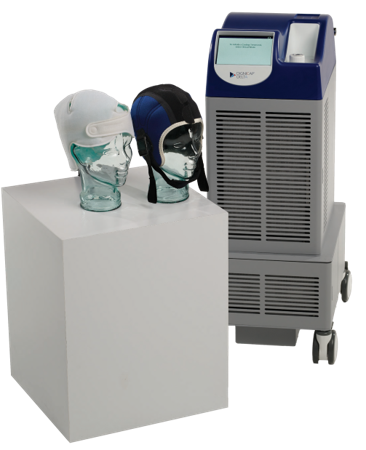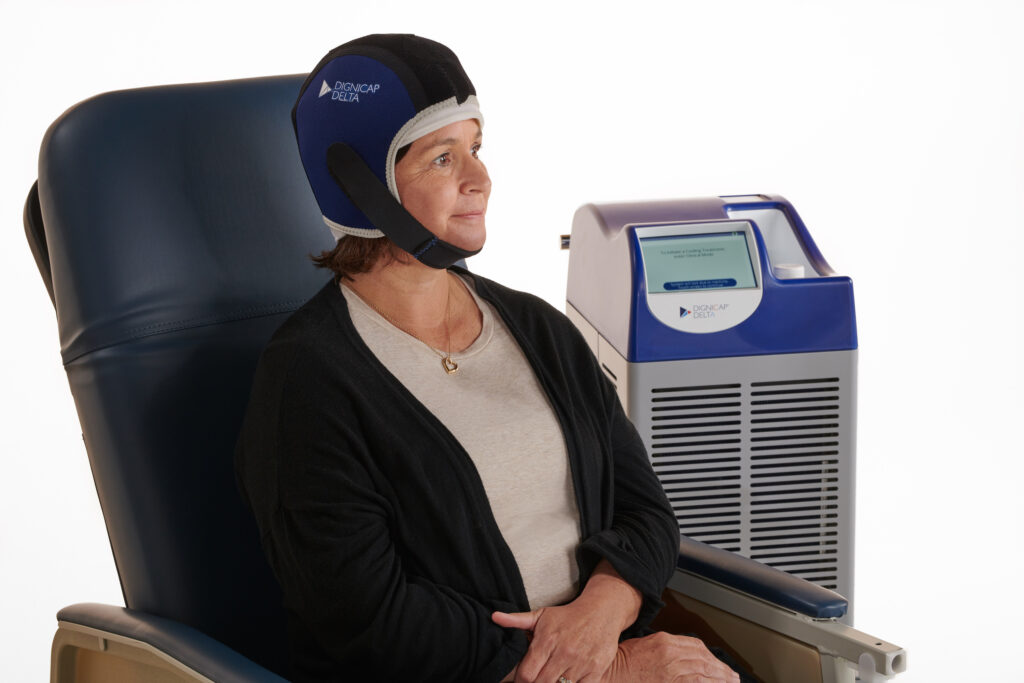The technology is a result of a shift towards a more patient-centred approach to cancer care, but it still faces significant barriers to access.
Over the past decade, we have witnessed a significant shift towards a more patient-centred approach to cancer care, where a much stronger focus is placed on supporting the emotional well-being of our patients throughout all stages of their treatment journey.
A breast cancer diagnosis can affect multiple aspects of a woman’s life and femininity, including her fertility, body, sexual health and appearance. Furthermore, up to 65% of patients will experience chemotherapy (CT)-induced alopecia, which in itself can cause feelings of shame, loss of confidence, anxiety and depression.1
For some women, the prospect of alopecia can result in such severe psychological distress that they opt to forgo CT altogether.1
Preventive measures such as scalp cooling therefore play a key role in empowering women to regain some control in maintaining the very visual feature of hair, and their identity.
By lowering scalp temperature before, during and after the administration of chemotherapy, scalp-cooling technology constricts blood vessels in the scalp, reducing the amount of chemotherapy reaching the hair follicle cells.2
In recent years, we have witnessed significant advances in this technology, with its effectiveness and patient tolerability continuing to improve. In particular, innovative methods of head wrapping to achieve better scalp fitting have helped to ensure more consistent distribution of temperature across the scalp.1
A recent study of the next generation DigniCap Delta® demonstrated that this technology prevented alopecia* in 77% of patients at three weeks from the start of CT, and almost two in three (60%) of patients at three weeks from the end of treatment.3 (*less than 50% hair loss)

Supporting the broader uptake of these services, Cancer Australia recently updated their guidelines for the management of early breast cancer to include scalp cooling in conjunction with CT.
There are currently two providers of scalp cooling technology in Australia, offering three products between them. However, significant access barriers remain for scalp cooling technology in Australia. These barriers include cost, patient flow, workload, capacity and adequate nursing staff, preventing many patients from accessing this option to make an informed choice on receiving scalp cooling. 1
Scalp cooling increases the amount of time patients are required to stay in the chair at the clinic, and they need to be managed by a nurse throughout the treatment. If scalp cooling is not effectively integrated into the care pathway, this can increase pressure on the care system.
However, continued innovations in scalp cooling cap design are helping to optimise cap fitting procedures, thereby reducing nursing time required per patient. Overcoming these barriers to improve access to scalp-cooling technology for all Australian patients undergoing CT nationwide is critical to helping patients regain some control and confidence when facing the distressing prospect of CT-induced alopecia.
Implementing an integrated approach to cancer care that addresses not only clinical treatment of disease, but also side-effect management, emotional and psychological wellbeing and patient quality of life, is crucial to optimising patient outcomes.
In line with this holistic approach, GenesisCare has recently partnered with Aurora BioScience to expand access to DigniCap Delta® – the first scalp-cooling system in routine use in Australia enabling single-patient cap use – for suitable patients around the country.

References:
- Diakos, C., et al. Scalp cooling in integrated model of breast cancer care. MJA Insight+. 2021 [May 2021].
- American Cancer Society. Cooling Caps (Scalp Hypothermia) to Reduce Hair Loss. 2020 [May 2021]; Available from: https://www.cancer.org/treatment/treatments-and-side-effects/physical-side-effects/hair-loss/cold-caps.html.
- Giarratano T, Frezzini S, Zanocco M, et al. Use of scalp cooling device to prevent alopecia for early breast cancer patients receiving chemotherapy: A prospective study. Breast J. 2020; 26:1296-1301. https://doi.org/10.1111/tbj.13711
Dr Connie Diakos is a medical oncologist at GenesisCare North Shore, a staff specialist at Royal North Shore Hospital in Sydney, and Conjoint Senior Lecturer at the University of Sydney.


